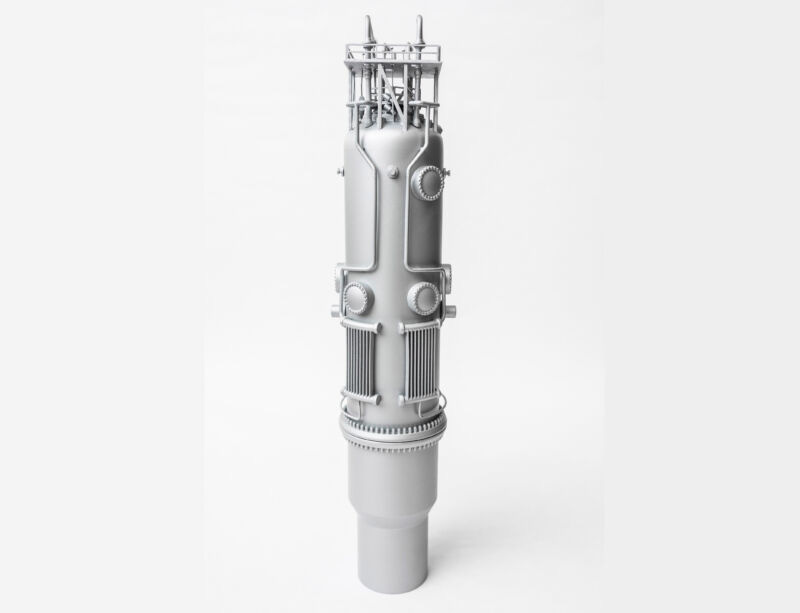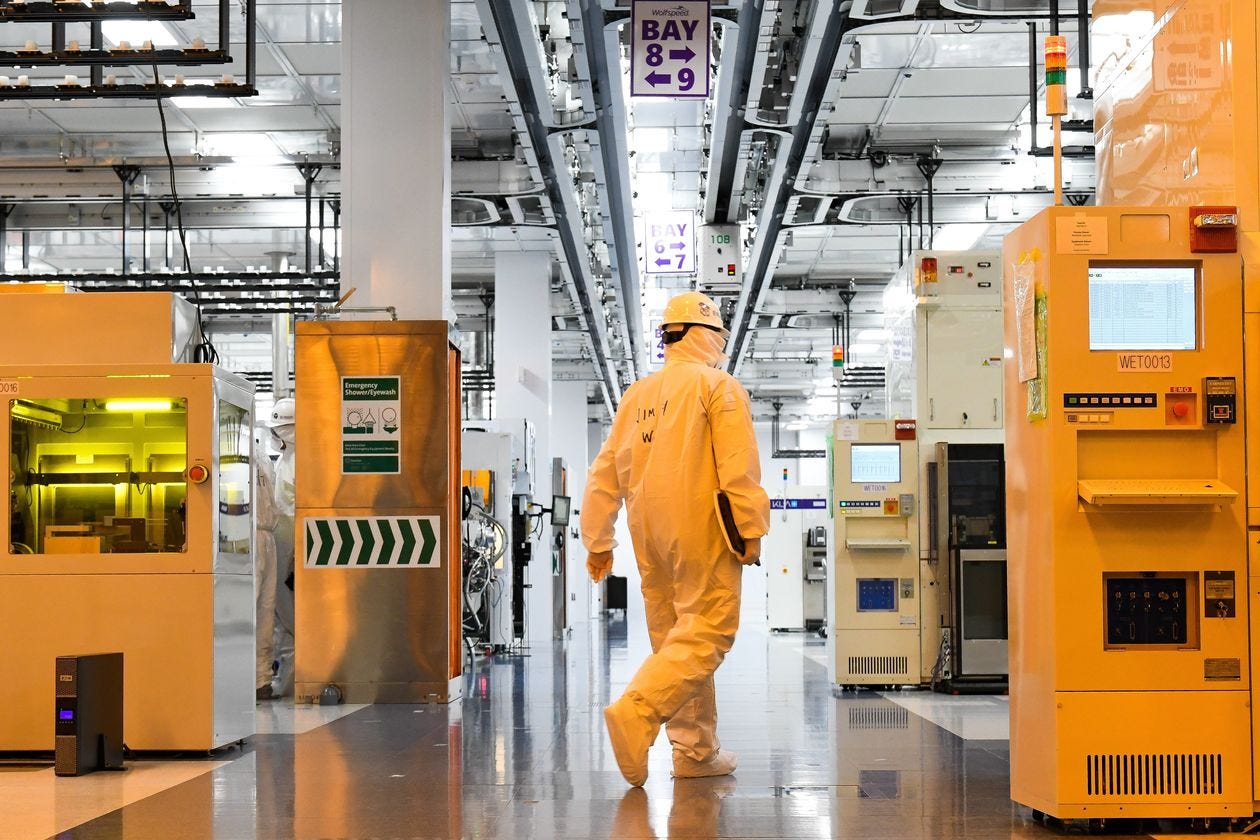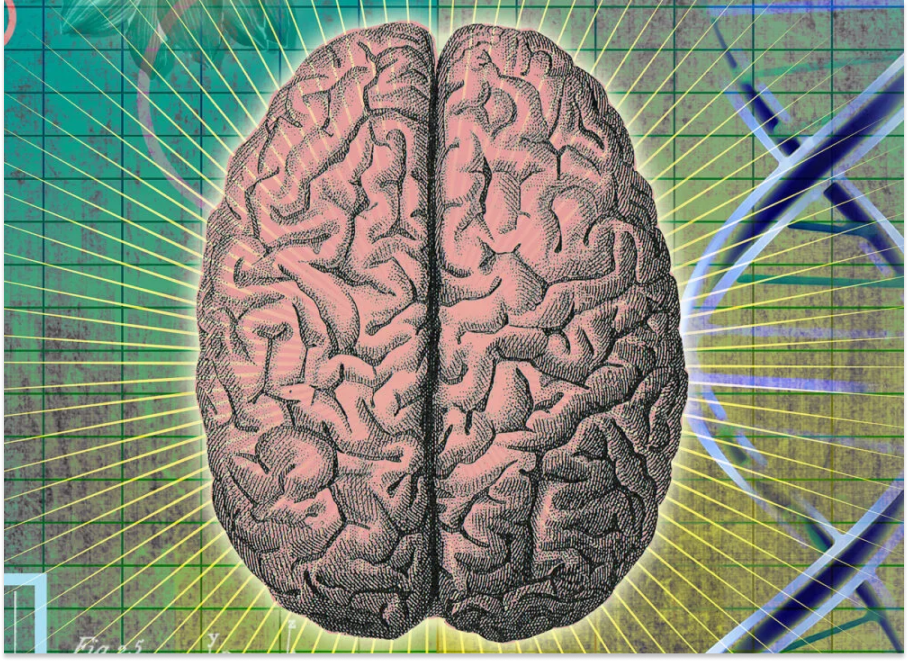Weekly Dose of Optimism #6
Mini Nuclear Reactors, CHIPs, 1,000,000x Engineers, Alzheimer's and Undead Pigs
Come for the Optimism, stay for the in-depth analyses of tech companies and trends:
Hi friends 👋,
Happy Friday! Welcome to our 6th Weekly Dose of Optimism, where we celebrate the incredible accomplishments humans manage to pull off and the progress that we’re — unsteadily and windingly — making.
It’s been awesome to see the positive response to the Weekly Dose so far. If you’re enjoying it, spread the optimism by forwarding this email or sharing the newsletter on social.
The Weekly Dose is brought to you by my daily dose… Athletic Greens
It’s easier to be optimistic when you start your day right. Every morning, I drink a homemade concoction starring Athletic Greens’ AG1. It’s one of the few products I actually use daily.
An AG1 subscription isn’t cheap — it’s ~$79/month or almost $1,000 year. But if being at the top of your game is as important to you as it is to me, it’s worth it.
Not Boring optimists can get a free one-year supply of Vitamin D and 5 travel packs when you order with the special Not Boring link.
(1) US regulators will certify first small nuclear reactor design
John Timmer for Ars Technica
Small modular reactors have been promoted as avoiding many of the problems that have made large nuclear plants exceedingly expensive to build. They're small enough that they can be assembled on a factory floor and then shipped to the site where they will operate, eliminating many of the challenges of custom on-site construction.
After six years of waiting, NuScale received design certification from the Nuclear Regulatory Commission for its small modular reactor. While deployment is likely years away, design certification is another positive step towards a more affordable, scalable nuclear-powered future.
Elsewhere, on Tuesday, German Chancellor Olaf Scholz said for the first time that it “could make sense” to keep Germany’s last three nuclear reactors online. While nuclear only generates 6% of Germany’s energy today, this is a notable shift in the EU’s most populous country’s posture towards nuclear.
(2) The U.S. Is Investing Big in Chips. So Is the Rest of the World.
Jiyoung Sohn for The Wall Street Journal
The new U.S. incentives, which cleared Congress after a House vote on Thursday, will help reduce the significantly higher price tag of placing an advanced chip factory on American soil.
The semiconductor industry is already flush with investment and incentives from private companies, capital markets, and governments. The question is not whether semiconductor companies have the capital they need to continue to produce & innovate on chips, but whether CHIPs Act subsidies can convince them to do so in the U.S.
This pairs nicely with Noah Smith’s Industrial policy starts with semiconductors. Smith explains why industrial policy starts with semiconductors, the U.S. current (and future) standing in the semiconductor industry, and why it’s crucial that startups get CHIPs funding.
(3) The brain that defied Alzheimer’s
Neil Osterweil for The Harvard Gazette
This patient gave us a window into many competing forces — abnormal protein accumulation, inflammation, lipid metabolism, homeostatic mechanisms — that either promote or protect against disease progression.
A couple of weeks ago, Science published a piece titled Blots on a Field in which they reported that a study published in 2006 which has underpinned the “amyloid hypothesis of Alzheimer’s, which holds that Aβ clumps, known as plaques, in brain tissue are a primary cause of the devastating illness” was based on fabricated images. It was devastating news for Alzheimer’s research, as the study led researchers on a 16 year, multi-billion dollar wild goose chase for naught.
Chalk this one up under “Optimism isn’t a belief that everything will go well all the time. It’s a belief that despite the inevitable challenges, we will make progress.”
This week, The Harvard Gazette covered the 2019 Massachusetts General Hospital discovery of a gene mutation that might improve resistance to Alzheimer’s, and work that’s being done to develop therapies based on the discovery.
In New Zealand, researchers at The University of Otago published a study in Frontiers in Neuroscience that “found a particular brain protein changed the gene expression and protein profile of the human neuron in pathways linked to enhancing learning and memory,” and are working to figure out how the protein or its derivatives might be delivered to the brain and be used as a therapy.
Both are early, but it’s cool to see that in the face of one huge setback, the human colossus is hard at work finding alternative routes.
(4) New hardware offers faster computation for artificial intelligence, with much less energy
Adam Zewe for MIT News Office
These programmable resistors vastly increase the speed at which a neural network is trained, while drastically reducing the cost and energy to perform that training. This could help scientists develop deep learning models much more quickly, which could then be applied in uses like self-driving cars, fraud detection, or medical image analysis.
A MIT team of 1,000,000x engineers has developed a “human-made analog synapse” that operates 1 million times faster than previous versions (which also happens to be 1 million times faster than the human brain.) 10x engineers are very 2019. What this means in practice: it’s becoming increasingly faster, efficient, and cheaper to train complex neural networks. Breakthroughs in processing power enable the innovations that will shape our daily lives — autonomous driving, medical image analysis, brain-computer interfaces, and much more.
(5) Pig organs partially revived in dead animals — researchers are stunned
Max Kozlov for Nature
Researchers connected pigs that had been dead for one hour to a system called OrganEx that pumped a blood substitute throughout the animals’ bodies. The solution — containing the animals’ blood and 13 compounds such as anticoagulants — slowed the decomposition of the bodies and quickly restored some organ function, such as heart contraction and activity in the liver and kidney.
The results of the experiment, led by Yale neuroscientist Nenad Sestan, raise questions about our definition of death. While researchers were unable to fully re-animate the “dead” pigs, they restored circulation and cellular activity in vital organs. We are still years away from touching humans with anything like this, but the results challenge the previous conception that cardiac death is irreversible.
Zvonimir Vrselja, a researcher on the team, noted, “We made cells do something they weren’t able to do…We’re not saying it’s clinically relevant, but it’s moving in the right direction.” Or in web3-speak: “We’re still so early!”
Bonus: The Case for Longtermism
William MacAskill for The New York Times
Longtermism is about taking seriously just how big the future could be and how high the stakes are in shaping it. If humanity survives to even a fraction of its potential life span, then, strange as it may seem, we are the ancients: we live at the very beginning of history, in its most distant past. What we do now will affect untold numbers of future people. We need to act wisely.
Will MacAskill, one of the originators of effective altruism, makes the case for longtermism. The argument goes that, on the grand scale of history, we humans today are just the beginning of the story and we have a key moral imperative today to live in a way that positively impacts the long-term future. Another one of those mind bending reminders of just how small each of us is, yet how important our actions can be.
Housekeeping
I’ll be taking off from writing in August for paternity leave, starting…now! We have Monday guests posts lined up each week and will still publish the Friday Weekly Dose of Optimism.
Some pretty brutal layoff news over the last couple of weeks — if you, or anyone in your network, is looking for your next job in tech, check out the Not Boring Talent Collective. It’s a completely free / no-strings-attached job board for smart, curious Not Boring readers — check it out here.
Thanks again to Athletic Greens for sponsoring The Weekly Dose of Optimism — the best way to support us to checkout Athletic Greens or share this email with a friend.
Thanks to Dan for editing, and to all of you who submitted optimistic content!
Humans are pulling off some pretty incredible things every week. Whenever you find examples, share them here and we’ll feature some in the newsletter.
Have a great weekend, and see you on Monday!
Packy










Interesting collection of what has happened around in the past week. Curation is an increasingly important need with the amount of time that the algorithm wastes